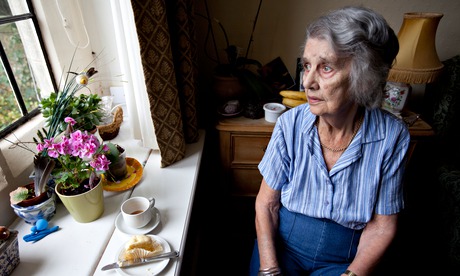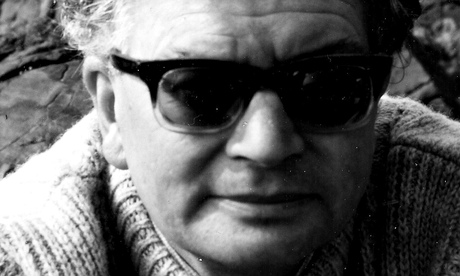If there is an irrepressible human trait it’s the determination, against all odds, to reconnect. Though governments seek to atomise and rule, we will keep finding ways to come together. Our social brains forbid any other outcome. They urge us to reach out, even when the world seems hostile.
This is the conclusion I draw from touring England over the past few weeks, talking about loneliness and mental health. Everywhere I have been so far, I’ve come across the same, double-sided story: stark failures of government offset in part by the extraordinary force of human kindness.
First the bad news: reminders of the shocking state of our mental health services. I met people who had waited a year for treatment, only to be given the wrong therapy. I heard how the thresholds for treatment are repeatedly being raised, to ration services. I met one practitioner who had been told, as a result of the cuts, to recommend computerised cognitive behaviour therapy to her patients. In other words, instead of working with a therapist, people must sit at a screen, using a programme to try to address disorders likely to have been caused or exacerbated by social isolation. Why not just write these patients a prescription instructing them to bog off and die?At least then they wouldn’t have to wait a year to be told to consult their laptops. I heard of children profoundly damaged by abuse and neglect being sent to secure accommodation – imprisoned in other words – not for their own safety, or other people’s, but because there is nowhere else for them to go.
These are not isolated cases. It is a systemic problem. There has been no child and adolescent mental health survey in this country since 2004 (though one is now planned). Snapshot studies suggest something is going badly wrong: figures published last week, for example, suggest a near quadrupling in the past 10 years of girls admitted to hospital after cutting themselves. But there are no comprehensive figures. Imagine the outcry if the government had published no national figures on childhood cancer for 12 years, and was unable to tell you whether it was rising or falling.
Of children referred for treatment for mental health disorders, 60% do not receive it. The Guardian recently published a mother’s account of how her child had been treated. Despite a severe mental health disorder, it was only after the child attempted suicide that she received the care she needed. The treatment consisted of sending her to the other end of the country: the only available bed was 300 miles from home. You don’t need to be a psychotherapist to imagine what that might do to a distressed and vulnerable child. But when the beds don’t exist, the health service has no choice. Embarrassed into a semblance of action, the coalition government promised another £250m a year for children’s mental health. It will scarcely touch the sides.
But amid the rubble of a collapsing state, I kept stumbling into something wonderful. Performing with the musician Ewan McLennan, using music and the spoken word to explore these subjects, has brought me into contact with groups that restore my faith in the human spirit.
In Leeds we ate in a cafe run by the Real Junk Food Project, whose meals are made from waste or donated food. Seeing people of all ages, from all stations of life, who had never come together before, yakking away over dinner like old friends, I realised that the project is addressing not only the waste of food but also the waste of social opportunity. Breaking bread together: this is still the best and simplest way of reconnecting.
In Sheffield I met a man creating safe spaces for people experiencing manic or psychotic episodes: using woods, allotments and – if his project gets planning permission – cobb houses like hobbit holes to create a place of comfort for those whose minds are reeling. In Durham I saw how people whose poor mental health and isolation exclude them from work are being gently introduced to the social skills and creativity that might allow them to re-engage. In Bristol I met someone from the Happy City initiative, which is finding ways to measure wellbeing and discovering the best means of enhancing it.
Across the country, groups such as the Campaign to End Loneliness, Age UK, Independent Age, Community Network, Young Minds, the Transition Network, the Network of Wellbeing and the forthcoming Jo Cox Commisssion on Loneliness are trying to provide a coherent response to the troubled times that lead to troubled minds. Everywhere I look, I see the kind of enterprise and innovation with which business is credited, but which seems to be found most often in the voluntary sector.
But what has struck me with greatest force is this. At the end of every gig, we ask people in the audience to turn to someone they don’t know and say hello. I tell them they needn’t do any more than that, but they can keep talking if they wish. On the first night I made the mistake of mentioning the idea before we had wrapped up the show. That was all it took – the conversation flared up immediately, and it was a long time before I could direct people’s attention back to the stage. After every concert the talking has continued long into the night, in the venue’s bar or the nearest pub. It’s as if people have simply been waiting for permission to speak to the strangers who surround them.
Britain, according to government figures, is the loneliness capital of Europe, but even – or perhaps especially – here, the urge to connect is overwhelming. This reattachment, I believe, holds the key to both our psychological and political transformation. Connected, engaged and happy people do not allow themselves to be trampled into the dirt. It is when we are estranged both from each other and from our political environment that we are easiest to manipulate, as the rise of demagoguery in Europe and the US seems to attest.
Neither state provision nor community action is a substitute for the other: we need both. But the more effective community groups and voluntary initiatives become, the harder it is for governments to disregard their duties. By talking together, we find our voice.
• You can comment on this article and others on our Your Opinionsthread, which opens every Wednesday at 10am
Without the power of kindness, our society will fall apart | George Monbiot







